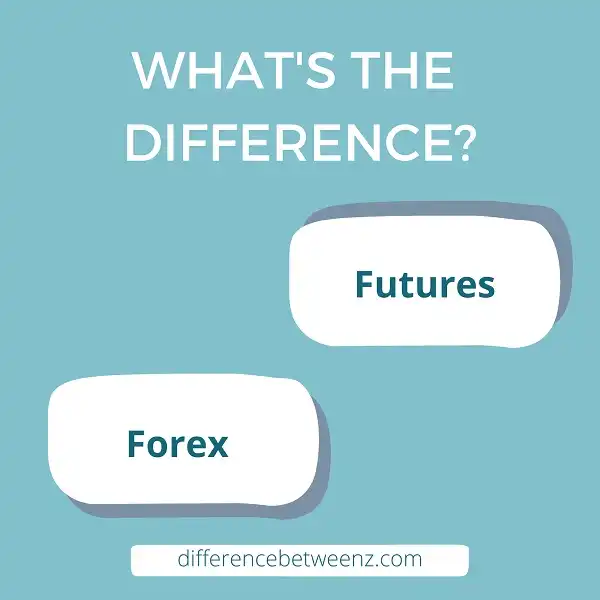When it comes to trading, there are a few different options available. You can trade stocks, futures, or Forex. Each of these markets has its own nuances and benefits. In this blog post, we will explore the differences between futures and Forex. We will also discuss which market may be best for you based on your trading style. Let’s get started!
What is Futures?
Futures is an investment tool that allows people to speculate on the future price of assets such as commodities, stocks, and currencies. Futures contracts are legally binding agreements to buy or sell an asset at a set price on a specific date in the future. Futures can be used to hedge against risk or to speculate on the direction of the market. Because Futures contracts are traded on exchanges, they are highly regulated and transparent. Futures can be a useful tool for investors looking to manage risk or take advantage of opportunities in the market.
What is Forex?
Forex, also known as foreign exchange or FX trading, is the process of buying and selling currencies. Forex is the world’s largest financial market, with over $5 trillion traded daily. Forex trading is conducted 24 hours a day, 5 days a week. Forex is a decentralized market, with no central exchange or clearinghouse. Instead, all transactions are conducted between two parties via telephone and electronic network. Forex trading is not regulated by any central authority, but there are various self-regulatory organizations for the Forex market. Forex trading is speculative in nature and carries a high level of risk that can result in loss of capital. Forex trading is not suitable for all investors. Before deciding to trade Forex, you should carefully consider your investment objectives, level of experience, and risk tolerance.
Difference between Futures and Forex
Futures and Forex are both financial instruments that allow investors to speculate on the future movements of currencies, commodities, or other assets. However, there are some important differences between the two. Futures contracts are standardized contracts that are traded on an exchange, while forex contracts are non-standardized contracts that are traded over-the-counter. Futures contracts expire on a specified date and must be settled in cash, while forex contracts have no expiration date and can be rolled over indefinitely. Futures contracts are also subject to margin requirements, meaning that investors must put down a deposit to cover potential losses, while forex contracts do not have margin requirements. As a result, Futures and Forex both offer opportunities for investors to speculate on the future movements of asset prices, but there are some important distinctions between the two.
Conclusion
Futures and Forex are two different investment vehicles. Futures contracts obligate the buyer to purchase an asset at a specific price on a future date. Conversely, Forex trades allow investors to buy or sell foreign currency without having to take physical delivery of the currency. The choice between futures and Forex depends on your goals as an investor. If you are looking for immediate exposure to the market with no obligation, Forex may be a better option for you.


